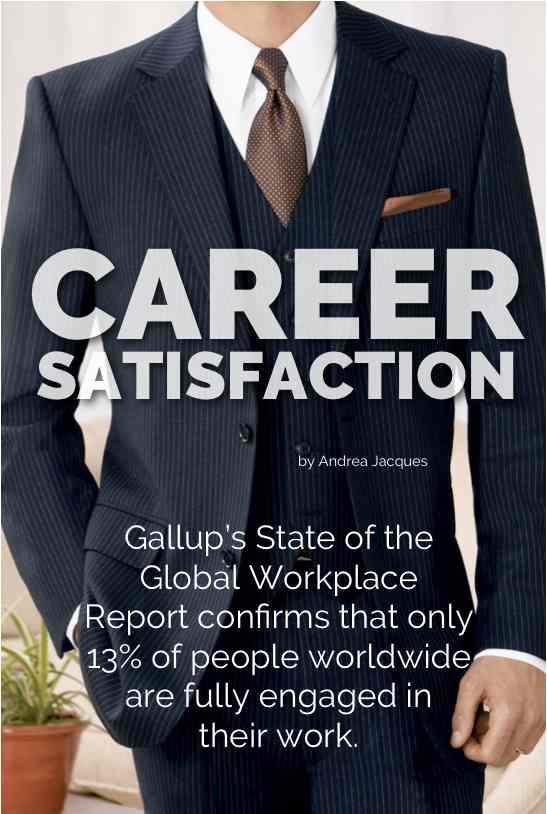- Belgium comes to Yamashita Park
- Residential Villa in Phuket Entices Remote Workers With Long-Stay Rates
- Rare pieces of French glass art at the Mirai Museum of Art
- Feast on fresh fish and seafood at the 2024 ‘Sakana’ Festival
- Would you like to ride in a Louis Vuitton gondola lift?
- Naked Snow Aquarium
- Festive lights at Yomiuriland will get you feeling the holiday vibes
Create more meaning, fulfillment and impact in your work
 While holidays are a time most people look forward to because they can forget about work, being away from work provides a great opportunity to gain some perspective on it and develop strategies to make it more productive and fulfilling.
While holidays are a time most people look forward to because they can forget about work, being away from work provides a great opportunity to gain some perspective on it and develop strategies to make it more productive and fulfilling.
Work is a huge part of most adult’s lives, taking up roughly 90,000 hours over the average lifetime. Because of this, work has the power to be a source of joy, fulfillment and meaning or a source of stress, disappointment and misery. Most people’s work, unfortunately, falls in the latter categories. (Gallup’s State of the Global Workplace Report confirms that only 13% of people worldwide are fully engaged in their work.)
The path to transform work from something that leaves you feeling like the walking dead to something that is a key source of energy and vitality begins with understanding how you think about work. This starts with taking a closer look at the words we use to describe work.
The Merriam-Webster defines work as sustained physical or mental effort exerted to overcome obstacles and achieve an objective or result, but there are many other words we use to refer to the idea of work. These words reflect our mindset about work and hence determine what we get from it (both the benefits and the limitations).
The idea that work is a “necessary evil” for example, contains within it the belief that work is never going to be fun and there is nothing that you can do about it. This attitude makes it unlikely you will try to address any areas of dissatisfaction, creating a catch 22 dilemma. Resigning yourself to having to accept the “necessary evil” of work, pretty much guarantees that it will become more of an “evil” over time. Just like the famous learned helplessness experiments Martin Seligman conducted with dogs in the sixties https://en.wikipedia.org/wiki/Learned_helplessness , your belief that your pain is inescapable, leads you to stay in a painful situation even after the barriers to leaving it have been removed.
Some of the most common words we use to think and talk about work in our lives carries with it a different mindset that influences your ability to create the levels of performance, fulfillment and success you desire.
Translated as shigoto in Japanese, this is one of the most common words to describe one’s work. Defined as a piece of work; especially: a small miscellaneous piece of work undertaken on order at a stated rate, seeing your work as a job carries several implications that do not bode well for creating a positive place for work in your life. This definition states that work is pieced out at random on the order of someone else and at a rate dictated by them. The implications are not only that you have little control over what the work is, but that you have no idea how your work fits into the big picture of what might be happening in your company.
This definition of work comes straight from the industrial age where assembly line work was indeed given out in small miscellaneous pieces where, it was believed, the workers had no need to understand how everything fit together as their job was to work only on the part they were being paid for. A great deal of research has since proven this approach to be incorrect. Performance, even on assembly lines, has been shown to improve dramatically when people understand and care about the big picture. This understanding has been shown to be even more crucial for performance, profitability and fulfillment as work becomes more complex and requires skills such as creativity, analysis and judgment as opposed to simple physical exertion.
While it might ring pretty true for your work, simply accepting it as status quo is not likely to bring you the levels of career satisfaction you desire. The good news is that you just might have more control than you think. Here are a few ideas to help you shift yourself out of the “work as job” mindset and into a place where you can create more meaning, fulfillment and impact in your work:
• Get involved outside of your current role. Volunteer to join or form a committee to make some positive changes in your workplace that will benefit not only you, but other employees and the business as a whole.
• Make an effort to understand the big picture. Get a copy of your company’s annual report, read their website, or look at some of their promotional materials to remind yourself of what the company is about (or at least the brand promise that they are attempting to deliver on). Ask your supervisor (or their supervisor) if you don’t understand the big picture of what your company is trying to do and where your role fits.
• Expand your knowledge and skills. Read books on business, marketing, management, technology, systems thinking, your industry or anything else that will help you elevate your understanding from cog in the machine to being able to participate more fully in directing the contributions you make at work.
Above all, challenge the assumption that you don’t have the right or the ability to step beyond your role. These actions might initially meet with resistance, but if you persist in wanting to understand the bigger picture and making attempts to contribute at a more complex level, you will likely be positively surprised by the outcome. If your actions don’t get results – and you recognize that you aren’t truly content to just have a job – it’s probably time to start looking for other options if you want to get something more from your work.















